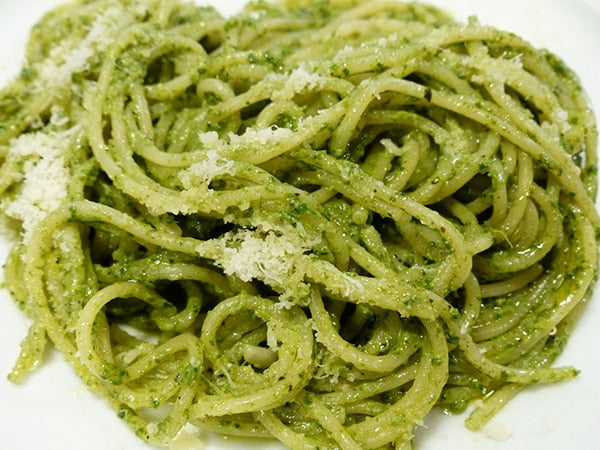I looked down at the bowl of pasta covered with green sauce.
“Eat it!” Said Artek, “It’s delicious.” And it was.
My wife’s uncle Artek was born in Poland and after finishing high school he decided to study ship’s engineering. Apart from his interest in the subject, this was a way of avoiding the draft. At that time in Poland (mid 1930s) nationalism was on the rise, especially in the armed forces, and this did not bode well for Jews. He was accepted to an Italian university and while there, he learned Italian. This was added to his other languages, Polish, English and German. (Most educated Poles spoke German.)
Not wanting to return to Poland, he set off for Palestine and subsequently worked for a shipping line in the port city of Haifa. While on a trip to Alexandria, Egypt, he met his wife to be, Sheila. She was born of Romanian parents who had settled there. Sheila spoke French (most educated Egyptians spoke French), Arabic, Romanian and, because she attended the best school in Alexandria which was run by Italian nuns, Italian.
Their language of courtship was Italian and even though they subsequently added other languages (she English and Hebrew, he French and Hebrew) they spoke it to each other for the rest of their lives. They permanently moved to the soon to be state of Israel and settled in Haifa. There they raised two daughters.
When Israel wanted new missile boats to replace aging World War II ships for their Navy, a German shipyard was contracted for the construction. Due to pressure from the Arab League, (consisting of Egypt, Iraq, Jordan, Lebanon, Saudi Arabia and Yemen, then enemies of Israel) Germany pulled out and a shipyard in Cherbourg, France agreed to build the ships. Artek along with his family moved to France in 1965. He was one of the engineers supervising construction. They spent about three years there where Artek and his kids learned to speak French. 12 boats were ordered and paid for. Seven were delivered but due to an Israeli raid into Lebanon, Charles De Gaulle, France’s president, angry with Israel, imposed an arms embargo on the state. Shortly thereafter, he was replaced by Georges Pompidou who decided to continue the embargo.
Israel really needed the boats and decided to acquire them by brazenly stealing them from under the noses of the French. In a very successful plan, all five boats sailed out of Cherbourg harbor on Christmas Eve 1969. The escape was so effective that the French didn’t realize what had happened until 12 hours later. By that time the Israelis were in international waters and even though the French Defense minister had ordered an air strike on the flotilla, the prime minister prevented any escalation.
When the boats arrived in Haifa, the crews were greeted as heroes by the Israelis. In a video of the arrival, Artek can be seen waving and smiling from the deck of one of the boats.
Shortly before the Israeli war of independence, my mother-in-law to be travelled the arduous route from Jerusalem, where she lived, to Haifa. In those days, the buses were armor plated because it was very common to be attacked when driving through Arab villages. Resultantly the bus ride was extremely hot. On arrival in Haifa, Artek met her and offered her two things: a hot shower, and tickets to hear Leonard Bernstein perform in Haifa. She accepted both. Many years later, on meeting Leonard Bernstein in New York, she told him the story. He remarked that he was sure she enjoyed the shower more than the concert.
I got to know Artek when my wife and I moved to Israel in 1971. Visiting them was always a pleasure. The language spoken round the table was a blend of Italian, French, Hebrew and English. The whole family was multi-lingual and the constant use of foreign phrases seemed natural. I could pretty much follow what was going on, but if I got stuck someone would rescue me in fluent English. (Unsurprisingly, when playing Scrabble in English with Sheila, she would often beat both my wife and me.)
At this time, Artek had a regular gig for Zim Lines, Israel’s commercial shipping line, sailing weekly between Haifa and Trieste in Italy. His regular shopping was done there. Resultantly, his larder was stocked with Italian groceries including pastas, sauces, cheeses, sopresatta and cold cuts. None of these items were available at that time in Israel. Coming from Glasgow, I had certainly not heard of, or ever seen green sauce (pesto). Never nervous about eating new things I tasted the pasta and fell in love.
His interest in good food and especially wine inspired me to indulge my nascent curiosity of cooking. I have cooked ever since and this love subsequently inspired my son to become a successful chef.
Header image courtesy of PxHere.com.



